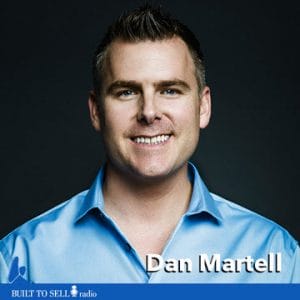About this episode
Dan Martell started Spheric Technologies to help Fortune 500 companies build website portals, an emerging business back in 2004. Within four years, Martell had scaled the business to 30 employees when he received an acquisition offer that would change his life.
To read a transcript of this episode, click here.
Martel has gone on to start and exit two more businesses since Spheric, and in this episode, he shares his negotiation tips and tricks. You’ll learn:
- A negotiation trick to get all of your potential acquirers into one room
- The strategic shift Martell made at the four-year mark which made is business much more valuable
- How to use currency arbitrage
- The key to productizing a service
- Where to find the most natural (i.e., strategic) buyers for your business
- How to approach potential acquirer without losing negotiation leverage
- The secret to getting the deal terms you want (Martell cut his industry’s standard three-year earn-out down to just six months)
- The definition of optionality and why you want it
- The surprising downside of a big financial windfall
Developing Your Short List
When Martell decided it was time to sell, he hosted a party and invite the CEOs of the five companies most likely to buy his business. Getting the CEOs in the room together was a savvy way for Martell to communicate to the buyers there would be a competitive bidding process for his company. The tactic worked because Martell knew who his likely acquirers would be. Find out your natural strategic buyers by completing The Short List Builder exercise, Module 11 of The Value Builder System™.
Get started now by completing Module 1 for free.

About Our Guest
Dan is a serial entrepreneur, speaker, investor, former founder of Clarity. Dan is a perfect example of someone who has overcome all odds to achieve massive success. Having built and sold 3 technology companies, Dan now dedicates his time to coaching high performing SaaS entrepreneur to scale their businesses in a predictable way.


